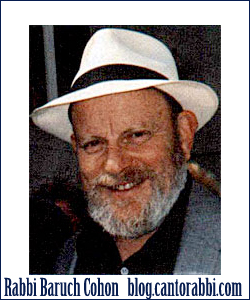Chapter 6 of Exodus tells of Moses receiving a Divine message. G-d tells him I am YHVH. This sacred name, the unpronounced Tetragrammaton or four-letter name of G-d, identifies the source of Moses authority. We cannot know how the name was or was not pronounced in Moses time but in Temple times it was enunciated just once a year, by the High Priest on Yom Kippur. Traditional Jewish practice substitutes the word haShem (the Name) for the four sacred letters when not used in prayer, and the word Adonai (the Lord) in worship.
The message in Exodus goes on to contrast the Divine relationship with the Patriarchs and with Moses. I appeared to Abraham, Isaac and Jacob as Kel Shaddai — Almighty G-d, but by My name YHVH (haShem) I was not known to them.
Does this mean that our Patriarchs did not know the Divine Name? Hardly. They all used the name freely. Even Eliezer of Damascus, Abrahams servant, not a member of the family, prayed to haShem. The Hertz Commentary points out, as did Rashi, that in this message to Moses no new name is spoken. G-d is certainly not changing His name. The significance of this statement is Divine reliability. In their day, says Hertz, the Patriarchs did not fully understand that this name identified the everlasting G-d of faithfulness whose promises, even though they extend over centuries and millennia, are invariably fulfilled. Did haShem promise Abraham that his descendants would have Canaan as their homeland? And was that promise kept? Did his descendants become slaves in Egypt instead? Never mind. G-d does not forget. Divine faithfulness guarantees that they will now go free, and return to conquer their ancestral home.
Did haShem promise a moshiach a redeemer to establish the Kingdom of G-d on earth? Was that promise kept? Did the human race instead produce centuries of chaos, corruption, violence and evil? Stick around. G-d does not forget.
Without doubt, the I appeared story is a message of hope. Distant hope, perhaps, but still hope.
But maybe something else is going on here. Maybe it was enough for the Patriarchs to recognize a mystical Almighty, and maybe Moses needs more. Face it. Right after receiving this message, Moses goes to his people in Egypt and assures them that they will indeed be liberated from the burdens of Egypt and brought to Canaan. How do they receive this news?
They did not listen to Moses, because of impatience and hard labor. Ex. 6:9
Not the first of Moses disappointments, or the last, this one shows him what an uphill battle he faces. He must convince both Pharaoh and his own people. Indeed he needs supreme faith in the Faithful One.
Just as Moses entered a different kind of epic than the Patriarchs did, so each of us must deal with our different challenges. Each of us should, and most of us do, form a personal connection with whatever name we give our inspiration our motivation our faith our G-d-concept or reasonable substitute. The higher we aim, the harder we strive, the more confident we feel thats how close we come to cementing that sacred connection. Thats our chance to reach our goal, our personal Promised Land, our Kingdom of G-d. We need only be ready to hear I appeared.
Leaders we celebrate for doing great things for their people from Judah Maccabee to George Washington, from Queen Esther to Mahatma Gandhi somehow formed the sacred connection. They were ready to hear I appeared.
So for each of us, keep listening.


